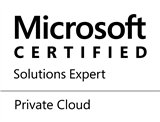
Categories

Sponsors


Archive
 Blogroll 
Badges


Community

|

Explanation about Linux Support on Hyper-V
Posted in Virtual Machine Manager | 2 Comments | 6,336 views | 17/03/2011 16:31
Hi everyone, I get mails from blog visitors about Linux support and benchmark results. Thanks to everyone who sends me email and share their ideas. I’m trying to reply every mail but I thought that writing on blog about that could be more easy. First of all, Microsoft supports only: * SUSE Linux Enterprise Server 10 with Service Pack 3 (x86 Edition or x64 Edition)
* SUSE Linux Enterprise Server 11 (x86 Edition or x64 Edition) * Red Hat Enterprise Linux (RHEL) 5.2, 5.3 , 5.4 and 5.5 (x86 Edition or x64 Edition) That means, If you use Centos, Debian or Ubuntu etc. on Hyper-V, You won’t get any support from Microsoft. So I recommend you to never use these unsupported distros in production. If you want to use them, use with your own risk. You may get errors or warnings when you use them. But let’s pass them and think about unsupported distros. If you want to use Ubuntu on Hyper-V, what should you do? We have a solution. Hyper-V Linux Integration codes added to Linux kernel last year. So what we do is, enabling that modules from kernel. There were 2 major improvements on kernel. Kernel 2.6.32: * Synthetic Ethernet Support
* Fast boot * Enlightened IDE support Kernel 2.6.35: * SMP (up to 4 virtual CPU support)
* Timesync * Integrated Shutdown So If you install a Linux distribution which uses kernel 2.6.32, you will get Fast Boot and Synthetic Ethernet support but you won’t get 4 vcpu support, timesync or even integrated shutdown. But if you install a distro which uses kernel 2.6.35, you will see the differences. You can reboot your server with shutdown button and you can get good performance from 4 virtual CPU. So if I give examples; with Debian 6 (kernel 2.6.32-5): * Fast boot
* Synthetic Ethernet with Ubuntu 10.10 (kernel 2.6.35-22):
* Fast boot
* Synthetic Ethernet * 4 virtual CPU * Integrated Shutdown So what happens if you give 4 vCpu to Debian (2.6.32)? Debian sees that 4 vCpu and boots without warning. But seeing 4 vCpu doesn’t mean Linux will use all processors at the same time. Of course 4 vCpu has positive effects on virtual machine but you should install integration services if you want to get more. 
Comments (2)

Leave a Reply
|








